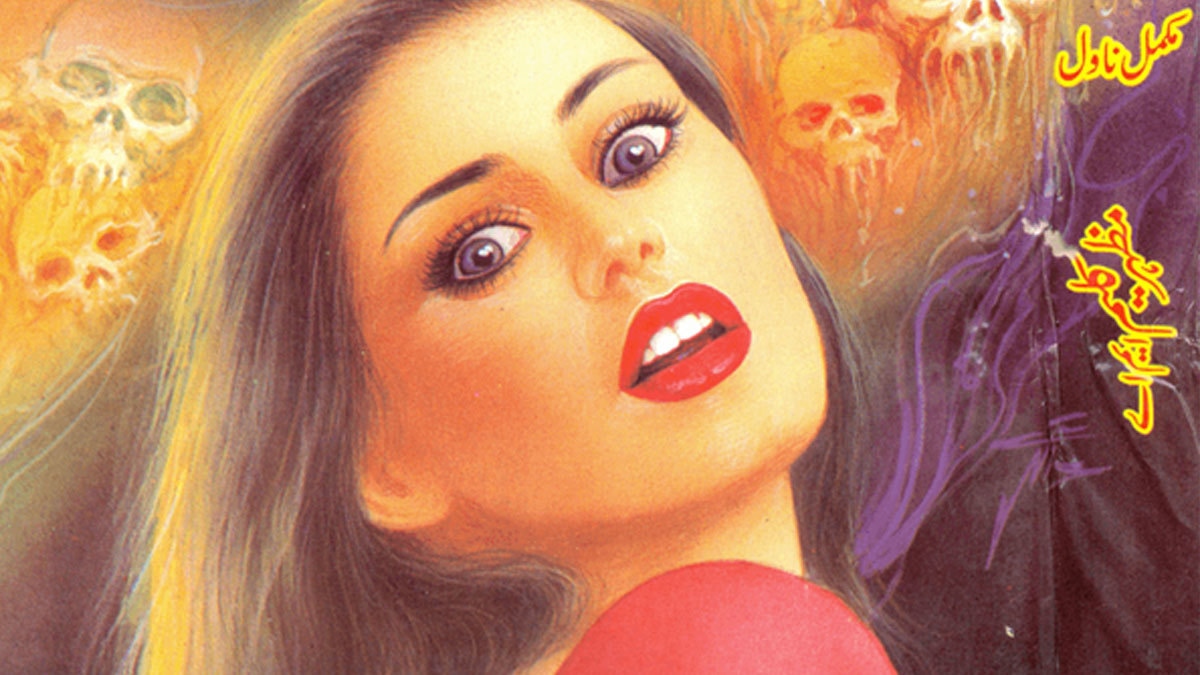Urdu has not been conducive to sci-fi literature: Usman Malik

Pakistanis are hungry for new kinds of fiction and their response to recent stories show that they really want it.
Author Usman T Malik, author of Midnight Doorways and the only Pakistani to have won a Bram Stoker Award, said this at a webinar titled Discussion on Pakistan Science Fiction on Tuesday. It was organised by American Pakistan Foundation and moderated by Muhammad Aurangzeb Ahmad, editor of the Islam and Sci-Fi project.
“Pakistani science fiction has been historically non-existent, except for a few writers,” Usman said. “Ismat Chughtai’s Roshni Ka Safar, which is sort of a time travel story, is a good example of early science fiction. Whereas, writers like Manto and Mumtaz Mufti have dabbled into what we call speculative fiction.” He said science fiction was historically considered a genre with space travel, adventures and laser suits only, but the term broadened later as more and writers produced work that overlapped the genre.

A lot of newer people today think of speculative fiction as an umbrella in which there is science fiction, fantasy, magic realism, etc. It has been historically misunderstood.
“One of my definitions of science fiction comes from the American writer Ted Chiang, who calls the genre fiction that pushes the boundaries of knowledge and tries to expand them.”
He said in South Asia, the genre has not been approached by writers in a critical way. “We don’t find many writers in Urdu or English who have taken science fiction in a serious way, but India and Bangladesh have a lot of sci-fi literature. Begum Rokeya’s Sultana’s Dream (a 1905 Bengali utopian novel) was the earliest feminist story about a parallel world where women run everything.”
The situation has, however, started to change in Pakistan. “A lot of people now are working on science fiction, such as Mohsin Hamid.” Hamid’s Exit West (2017) delves into the themes of emigration and refugee crises. It is a story of a young couple in a war-torn city, who have to use a system of magical doors to flee, which lead them to various locations around the world. Kamila Shamsie’s The Djinn Falls and in Love and Other Stories is also testament to the fact that more and more writers are now doing critical work on science fiction. Usman also praised Nudrat Kamal’s work on jinns and their history.
“I can say 2020 was the year science fiction came of age in Pakistan,” he said, adding that eight or nine science fiction writers were published professionally, which is a big number for a country where there were no sci-fi writers 20 years ago.
He said Pakistan has a very rich history of speculative fiction, which also includes fantasy and children’s literature. “Children’s literature is not taken seriously in Pakistan,” he said, mentioning Bachon Ki Dunya and Bachon Ka Bagh. “Now we have Kehkashan Khalid, Nihal Ijaz Khan, Nur Nasreen Ibrahim and Sameem Siddiqui, who is the second Pakistani to have her story AirBody in the best fiction of the year.”
According to Usman, there are three major reasons that have opened doors for science fiction in Pakistan.
“The first is that super-hero universe makes a lot of money,” he said, mentioning the Harry Potter and Twilight series.” There is so much money going into these genres that they are no longer considered “nerd” or “niche”.
The second reason is Pakistanis’ search for escapism, leading them to science fiction. “Because of Pakistan’s war on terror people here are sick of realist fiction.” Pakistan has been living in a dystopia for the last 50 years and escapism is never a bad thing, he added. It allows us to move forward.
The third reason, he said is the Salam Award. It was set up in 2016 and has become a perennial fixture in South Asia’s science fiction. “We have hundreds of entries and have read over 250 writers.” The awards also enable writers to get to know about editors and publishers in New York and the entire submission process.
“We have seen traditional themes being recreated by young writers,” said Usman. There are stories about android robots in Balochistan, puppets facing language issues in Sindh, among others. “We are finally moving beyond the traditional saas bahu and patriarchal stories.” The trauma at the time of partition is also being viewed through a sci-fi lens.
Talking about water shortage in Sindh, Usman said writers can come up with fiction that examines different possibilities and solutions to these crises. He said Pakistani science fiction is moving towards equality, delivery of progressive and imaginative thoughts. “We have people thinking these themes and we to imagine the solutions. How about a year in which we write only utopian stories?
One reason why Urdu could not make much progress in science fiction is because of its vocabulary. “Urdu has not been conducive to sci-fi terminologies. How many science fiction novels can we name in Urdu or Siraiki?”
Usman added that dystopia is a very “western” and “American” concept, where it is fascinating, but remarked that Pakistanis are already living in it.
The author called for universities to include science fiction as a course. “We need science fiction courses because they are critical to our growth.” Conferences and workshops can also be organised where published authors can train and guide aspiring writers.
“The wonderful thing about art or literature is that it has the power to nurture and inculcate empathy,” Usman remarked.





